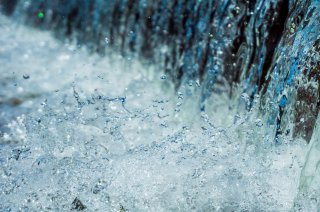 Edwin P M from Pixabay" fetchpriority="AUTO">
Edwin P M from Pixabay" fetchpriority="AUTO">
WaterWorks2015 Joint Call
Combatting water shortages and pollution
Water pollution is a worldwide challenge, and agriculture plays a major role in it. Enormous amounts of nutrients, herbicides, organic matter, drug residues and sediments that come from farms, yearly end up in surface waters.
A second challenge is the excessive amount of water that farms require. Irrigation accounts for nearly 70 percent of the world's freshwater withdrawals, which is increasingly problematic in countries that suffer from droughts.
Efficient irrigation
To help regions to improve water use efficiency, and simultaneously reduce water pollution, FACCE-JPI and JPI Water have initiated the ERA-NET Cofund WaterWorks 2015, a programme that funds 21 projects in which researchers from different Europeans regions are collaborating.
For example, some research groups are now jointly evaluating more economical irrigation techniques such as drip irrigation, others are working on software applications that can keep farmers informed about soil moisture, plant growth and weather forecasting, so that they do not irrigate unnecessarily. Others improve the use efficiency of water and nutrients in continuous arable farming and mixed farming rotations of cereals with grass.
Riparian buffer strips
To mitigate water pollution, the researchers of WaterWorks2015 evaluate techniques such as constructed wetlands and riparian buffer strips (shores planted with hedges or trees).
They also improve the monitoring of water quality, as well as the model studies that can estimate the costs and benefits of interventions. Integrating social and economic dimensions into the management and governance, and jointly developing knowledge with stakeholders, are important goals of the projects too.
WaterWorks 2015 (over 21 million Euro) is funded by 25 national and regional funding organisations from 22 countries, and co-funded by the European Commission.